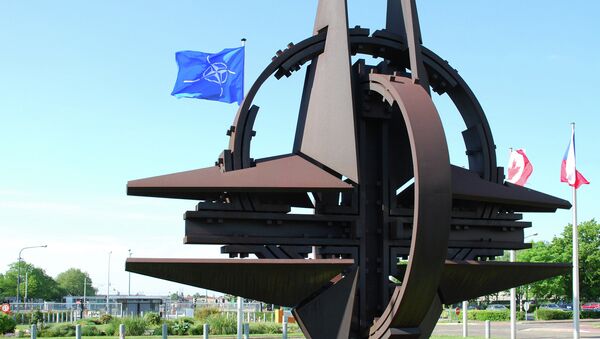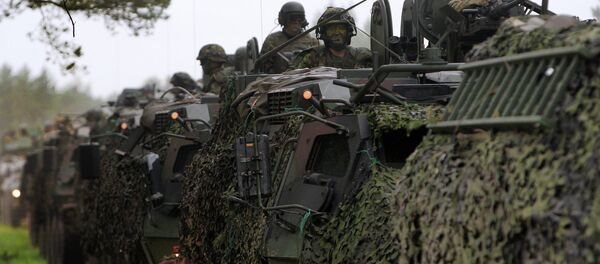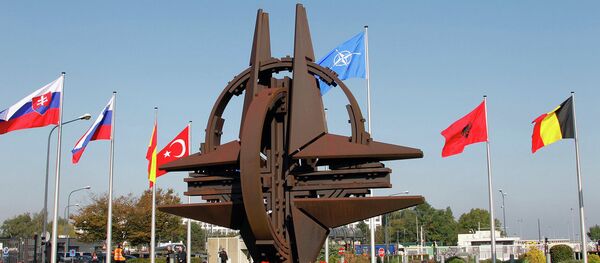NATO Secretary-General Jens Stoltenberg recently announced the alliance’s plan to have an interim rapid-reaction force in place by 2015 to deal with the security challenges in Europe and elsewhere. A full-scale unit is expected to be established by 2016.
The expert noted that with the establishment of this new unit, the NATO military alliance will have permanently stationed military forces right on Russia’s border.
Referring to US foreign policy as reminiscent of the Cold War in the 1950’s, Gagnon said that the ultimate US-NATO goal was to balkanize Russia like has been done to Yugoslavia, Iraq, Libya and most recently to Syria.
Gagnon was also of the opinion that NATO wants control of resource extraction in the Arctic region, of which Russia has the largest land border along.
“So the plan appears to be to militarily encircle it [Arctic border] in order to try to give western oil corporations full control of that part of the planet. “Other countries like Canada, Norway and Sweden are being brought into this Arctic militarization program as well,” Gagnon explained.
Meanwhile, John Quigley, Emeritus Professor at the Ohio State University told Sputnik on Thursday that NATO should reassess its position in regards to Russia by firstly taking into account the right of self-determination for the population of Crimea.
Russia’s Foreign Ministry said Wednesday that NATO is not ready to develop equality-based cooperation with Moscow in countering real security threats in the Euro-Atlantic region.
Relations between Russia and NATO have deteriorated amid the Ukrainian crisis, as the alliance has accused Moscow of interfering in Ukraine’s internal affairs. Russia has repeatedly denied the claims.
Following the reunification of Crimea with Russia in March, NATO boosted its military presence in Poland and in the former Soviet Baltic republics of Latvia, Lithuania and Estonia, suspending all practical cooperation with Russia.
Russia has repeatedly expressed concern over the bloc’s expansion in Eastern Europe and the current increase in its military presence close to Russian borders. In late September, Russian Foreign Minister Sergei Lavrov called NATO expansion a "mistake" and a "provocation" that undermines the entire European security system.




